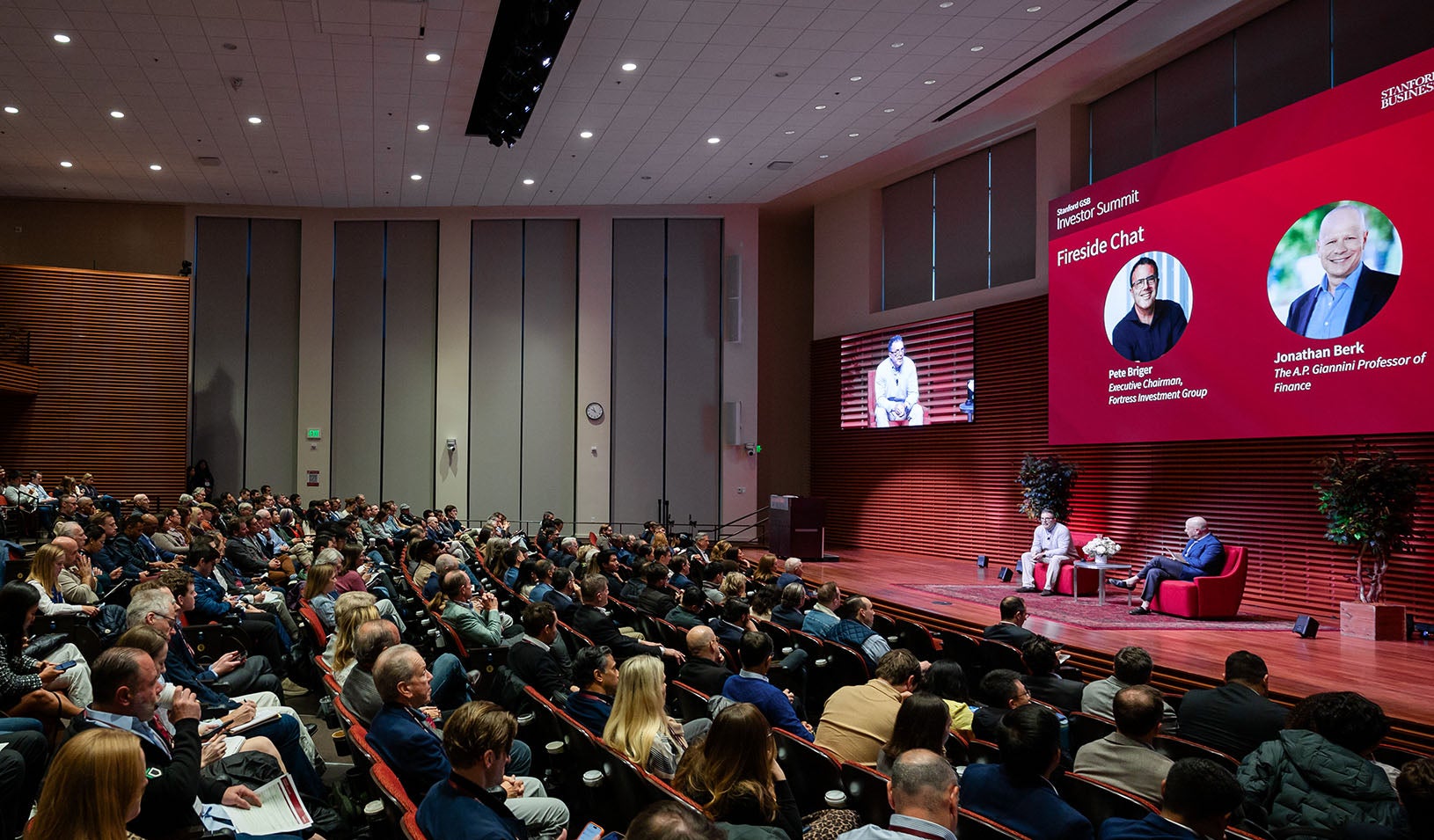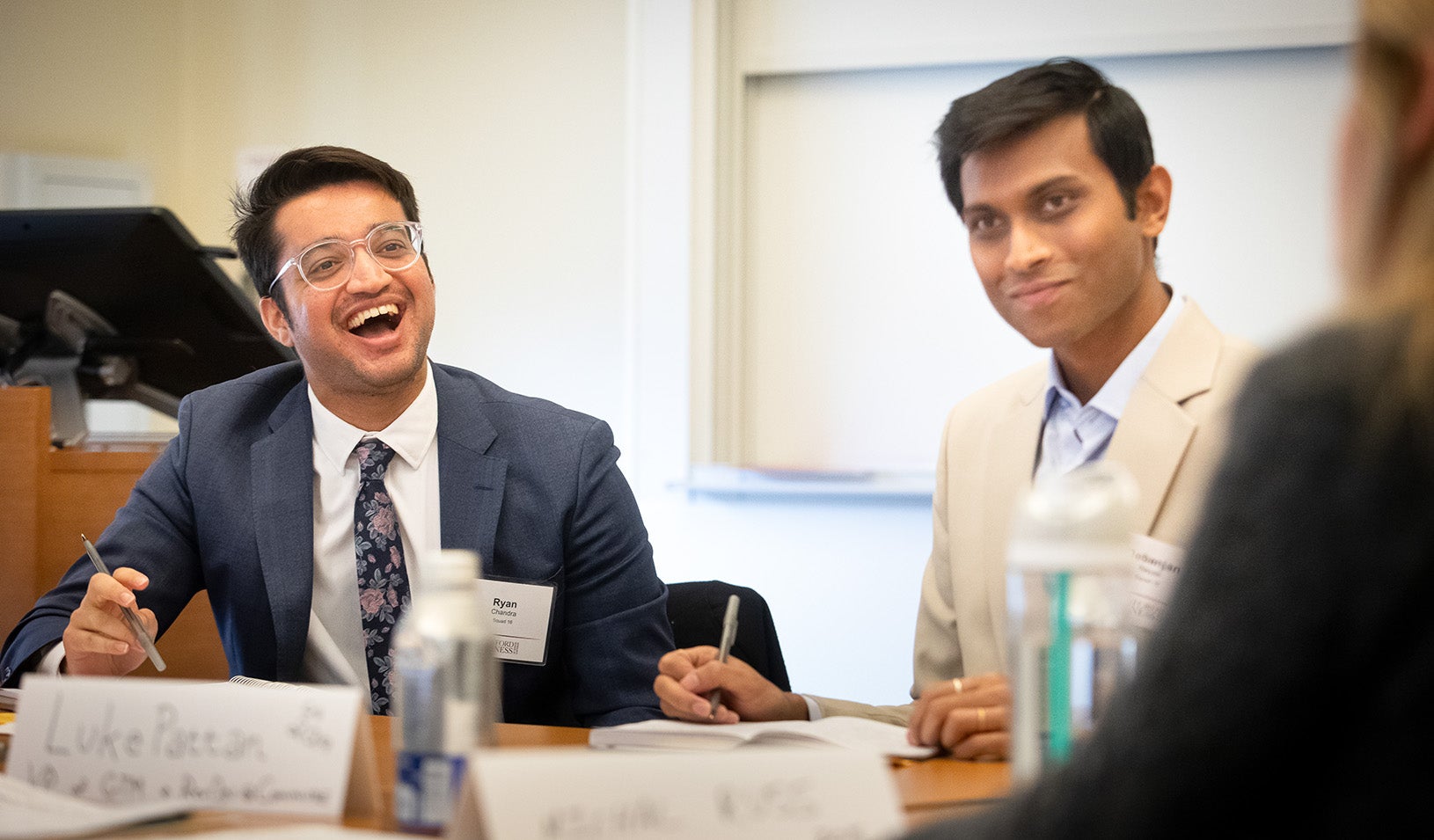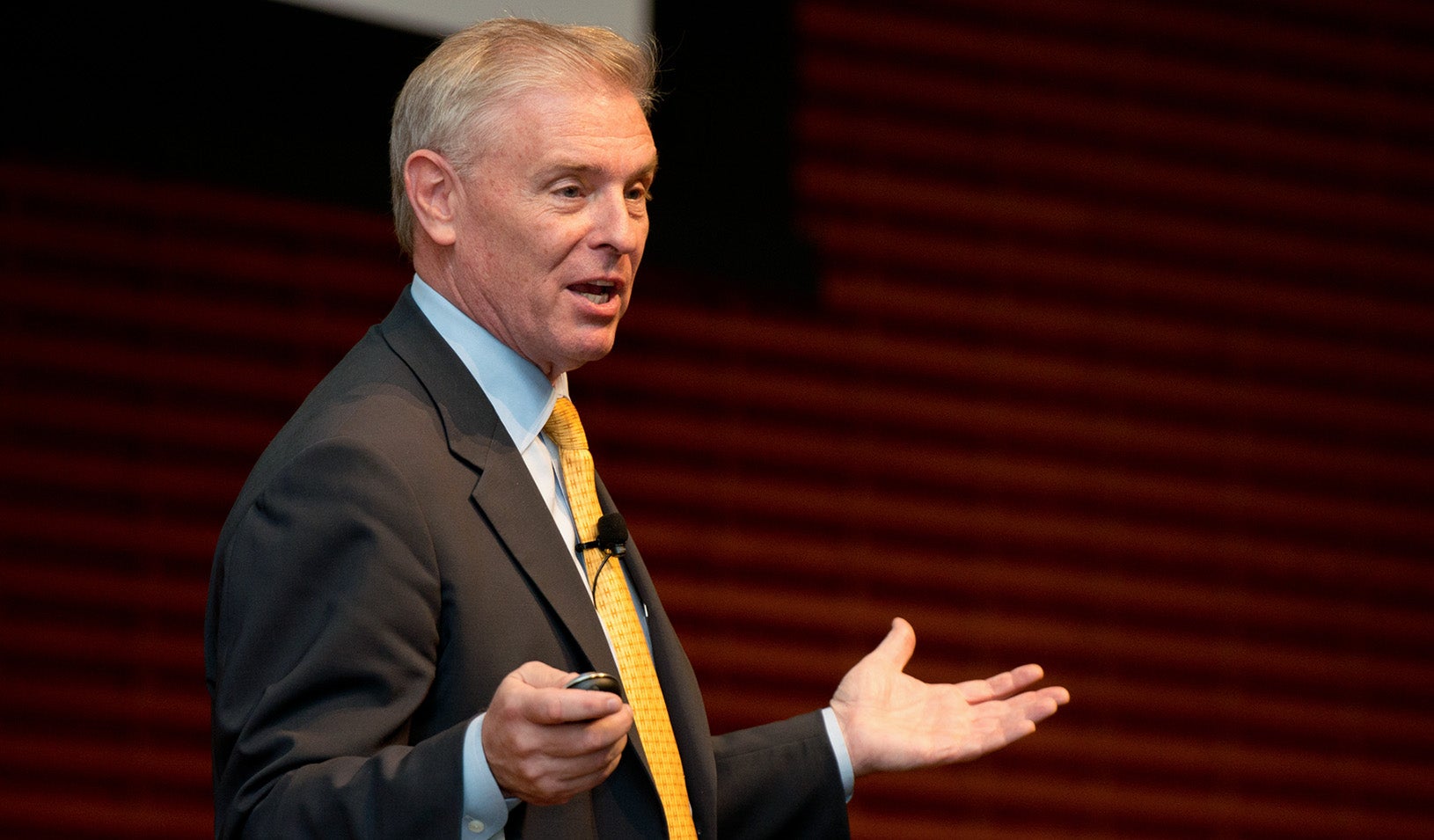August 06, 2020
When COVID-19 started to hit, the first step we took as an organization was to listen.
Rajan Patel, MBA ’16
Rajan Patel is the cofounder and CEO of Dent Education, a nonprofit that empowers under-resourced youths in Baltimore to harness their innate creative potential to shape the world around them. “In our programs,” Patel says, “young people build stuff, create value, and make a dent.”
We got in touch with our students and tried to understand their experience. There was an acute need. Parents were being laid off and there was no means for income to support things like rent and food. Like many of us, students felt anxious, disconnected, and even hopeless. We realized we had an opportunity to actually do something about this.
One of the big problems is the shortage of personal protective equipment for frontline workers. That’s when we thought, “What if we leveraged our young makers to be the ones who could actually build and deliver this safety equipment to our local community?” Not only would students feel engaged and empowered in response to COVID-19, but also we’d be able to pay students one dollar for every face shield that they build.
It’s been just about a month now, and we’ve already manufactured over 5,000 face shields. We have orders from primary health centers, local grocery stores, and other essential businesses. We have an order of 2,500 units from a local fire department. Our face shields are being used right now.
I’m lucky to have grown up in a very loving family, with my parents and my two grandparents. They emigrated from India to the U.S., where I was born. So much of what I am today is because of their love and hard work.
My parents ended up living the American dream. They raised us, worked hard to support our family, and were able to send their son to Stanford. They thought, “Rajan, you will have so much opportunity to earn and support the family after college.”
But I went through a transformation in college and decided that my goal was to become a social entrepreneur. I graduated with an engineering degree from Stanford and ended up moving to India, the country they left, to help start a nonprofit [Embrace, which provides low-cost incubators to prevent neonatal deaths]. I chose to do work that I cared about and that made the world a more fair place, rather than maximize my earning potential. And that has definitely been a conversation between us.
At the same time, I try to let my family know that the greatest happiness I’ve had in my life is because I have the privilege of being able to choose and create my own life. And that is because of what they’ve given me. Working with the students in Baltimore, I realize how fortunate I am to have this kind of agency and opportunity. And I am grateful that my family has been so supportive, in many ways, of my choices and my work.
A lot of the work we do at Dent comes from recreating my own personal experiences. When I entered Stanford as an undergrad, I wanted to be a doctor. I was a good test-taker who excelled at math and science but was not creative. I hadn’t even heard of the word “entrepreneurship.”
When I first took a class in what’s called the PRL, the Stanford Product Realization Lab, I walked into this brick firehouse and got intimidated. It was filled with huge machines. It smelled like oil and grease. I’d never heard many of the words that people were using, and I actually tried to drop out of the class after the first session. My coach, Craig Milroy, said, “Look, I’ve been doing this for over 40 years, and you can do this. Every human being is a maker.”
It was there, and through my experiences in design and engineering courses, that I realized not only my potential to actually build things, but also that I could build stuff that solved problems. Understanding that changed my entire worldview.
The Baltimore students we work with are coming from communities and neighborhoods that have been historically oppressed and under-resourced. But they have all the traits of what it takes to be an entrepreneur. They are resourceful. They are creative. They know how to hustle. They know how to look out for others and build community.
What they don’t always have is the outlet to express themselves in a productive way. So at Dent we teach them how to use design thinking to understand a problem in the community and come up with creative solutions.
With our Made@Dent PPE initiative, our goal in the next two months is to create 50,000 face shields for frontline workers in need. Beyond that, we’re building an infrastructure to leverage our existing assets — namely, our young creative makers and innovators. If they can build face shields in a time of a global crisis, what else can they build that will be needed?
— Told to Steve Goldbloom
For media inquiries, visit the Newsroom.



